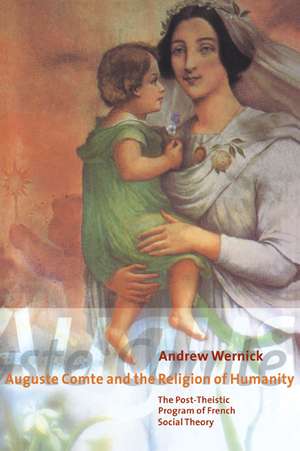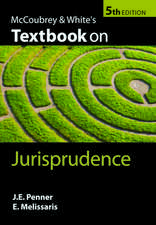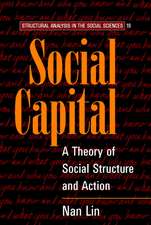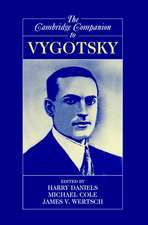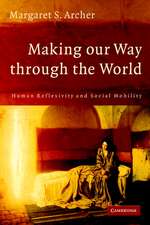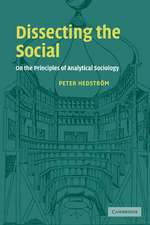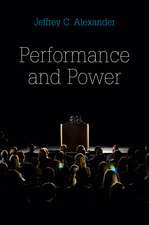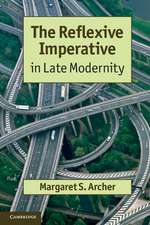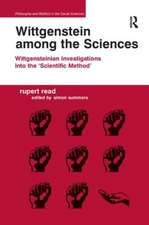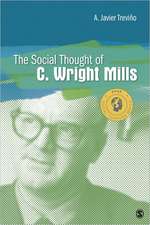Auguste Comte and the Religion of Humanity: The Post-theistic Program of French Social Theory
Autor Andrew Wernicken Limba Engleză Paperback – 23 noi 2005
| Toate formatele și edițiile | Preț | Express |
|---|---|---|
| Paperback (1) | 281.17 lei 6-8 săpt. | |
| Cambridge University Press – 23 noi 2005 | 281.17 lei 6-8 săpt. | |
| Hardback (1) | 682.71 lei 6-8 săpt. | |
| Cambridge University Press – 29 apr 2001 | 682.71 lei 6-8 săpt. |
Preț: 281.17 lei
Nou
Puncte Express: 422
Preț estimativ în valută:
53.83€ • 56.03$ • 44.31£
53.83€ • 56.03$ • 44.31£
Carte tipărită la comandă
Livrare economică 31 ianuarie-14 februarie 25
Preluare comenzi: 021 569.72.76
Specificații
ISBN-13: 9780521023627
ISBN-10: 0521023629
Pagini: 292
Dimensiuni: 154 x 229 x 19 mm
Greutate: 0.43 kg
Ediția:Revised
Editura: Cambridge University Press
Colecția Cambridge University Press
Locul publicării:Cambridge, United Kingdom
ISBN-10: 0521023629
Pagini: 292
Dimensiuni: 154 x 229 x 19 mm
Greutate: 0.43 kg
Ediția:Revised
Editura: Cambridge University Press
Colecția Cambridge University Press
Locul publicării:Cambridge, United Kingdom
Cuprins
Acknowledgments; 1. Introduction: rethinking Comte; 2. The system and its logic (1): from positive philosophy to social science; 3. The system and its logic (2): from sociology to the subjective synthesis; 4. Religion and the crisis of industrialism; 5. Love and the social body; 6. The path to perfection; 7. Humanity as 'le vrai grand-être'; 8. Socio-theology after Comte; References; Index.
Recenzii
'Mr Wernick's book on August Comte is brilliant. ... (He) succeeds admirably in placing Comte's religion in the context of his time and in the history of social theory in France. … This book will give any reader pause to reflect on the distinctiveness of French social theory, the problem of defining a community, and the relationship between politics and religion in both its theistic and post-theistic forms.' Mary Pickering, San Jose State University, California
Notă biografică
Descriere
This 2001 book is a critique of Comte's concept of religion and its place in his thinking on politics, sociology and philosophy of science.
